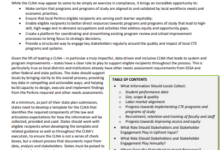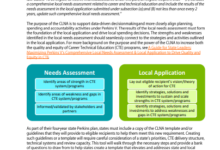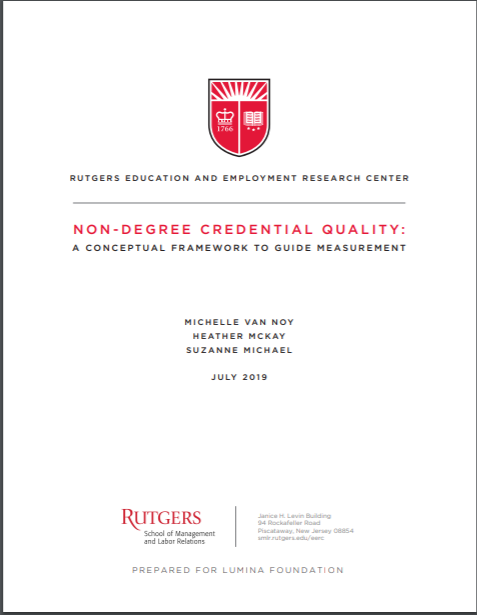This resource from the Rutgers Education and Employment Research Center uses a conceptual model of non-degree credential quality to suggest potential measures of quality for non-degree credentials. The four elements of this conceptual model are:
- Credential design: Defines what a credential represents in terms of the competencies it marks and how it seeks to do so;
- Competencies: The skills and knowledge that the credential aims to represent;
- Market Processes: The ways a credential comes to be recognized and have currency in the world;
- Outcomes: Educational, employment and social advancement of individuals, employers and society that result from attainment of a credential.
All stakeholders can benefit from understanding how to identify credentials of value including learners who earn credentials, states who invest resources into the development and training associated with credentialing programs, and employers who oftentimes take credentials into consideration when hiring. Given the equity implications — quality non-degree credentials have the ability to facilitate social mobility while low-quality credentials can perpetuate or worsen inequality — the report centers on three key questions:
- How can quality be conceptualized for non-degree credentials?
- What are possible measures of quality for non-degree credentials?
- How can stakeholders better measure and promote quality in non-degree credentials?







